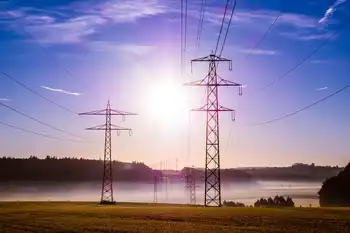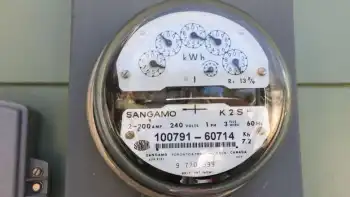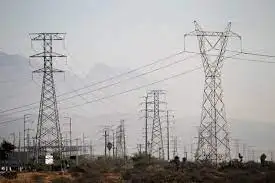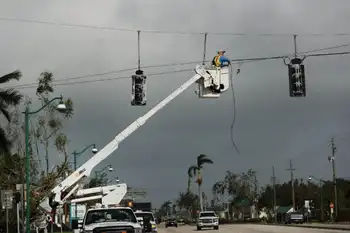Moving toward waste-to-energy
BRADENTON, FLORIDA - The Palm Beach County Solid Waste Authority is preparing to launch an $820 million bond financing program for the construction of one of the first waste-to-energy facilities built in the U.S. in many years.
The new 3,000 ton-per-day facility will be constructed near an existing 2,000 ton-per-day waste-to-energy plant, which burns household garbage in a process that produces electricity.
The plan of finance to build the facility calls mostly for bond financing. The Solid Waste Authority may use available cash to pay for a majority of the cost of the electric generating facilities, estimated at $100 million, which would reduce the amount to be borrowed as taxable debt.
The SWA hopes to bring the first tranche of $120 million of tax-exempt revenue bonds to market before the year ends to take advantage of the alternative minimum tax holiday afforded by the American Recovery and Reinvestment Act.
The schedule for issuing the remaining debt is dependent on whether Congress extends the AMT holiday through next year, which would enable the authority to sell $600 million of tax-exempt non-AMT bonds and potentially $100 million of taxable bonds, depending on how much available cash is used.
If the AMT provision is not extended, the agency likely would sell the second tranche in 2012.
The plan of finance could be delayed a few months because of a new requirement imposed by the Florida Department of Environmental Protection for the county to install enhanced air pollution control systems, which would require modifying the design criteria, according to SWA chief financial officer Charles Maccarrone.
The new requirement also could add up to $60 million to the cost of the overall project, he said.
The authority was in the midst of reviewing proposals to design, build, and operate the new plant, which had been received from Babcock & Wilcox Power Generation Group Inc., Covanta Energy Corp., and Wheelabrator Technologies Inc.
In the next month, the waste agency will decide whether to offer an addendum to the existing request for proposals or start the RFP process over again to accommodate the state permitting requirements.
"We have sufficient cash on hand for about half of the costs previously anticipated to be funded by the first issue of $120 million, thereby allowing us to delay that funding and possibly combine the two issues into one to be sold later in 2011," Maccarrone said.
According to the Energy Recovery Council, 87 waste-to-energy plants are operating in 25 states, disposing of about 28.4 million tons of municipal solid waste each year.
They generated an estimated 17 million kilowatt hours of clean, renewable energy in 2006.
Since it can be significantly less costly to use landfills in many areas of the country, the expense of building waste-to-energy facilities is one reason why few have been developed in the U.S. in at least 15 years. The process is more widely accepted throughout Europe and Asia.
"Economic issues surrounding energy prices and landfill prices were the primary drivers limiting the construction of new facilities," said Energy Recovery Council president Ted Michaels. "A number of those factors have changed, which is why there has been renewed interest in waste-to-energy around the country."
With land and hauling costs at a premium in much of Florida, the construction of Palm Beach County's new facility is expected to extend the life of an existing landfill until 2040.
The county already owns a 2,000 ton-per-day waste-to-energy facility that opened in 1989 and is operated by Palm Beach Resource Recovery Corp., a subsidiary of Babcock & Wilcox.
The SWA sold $320 million of bonds in 1984 to finance that project.
In April 2009, the authority issued $261.5 million of bonds to refurbish the existing facility and to provide $5.2 million of $6.2 million spent to date on the preliminary design and engineering costs associated with the new renewable energy facility.
The bonds were rated Aa3 by Moody's Investors Service and AA by Standard & Poor's.
Maccarrone said the authority expects to meet with rating agencies in September to discuss the financing for the new waste-to-energy facility.
Spectrum Municipal Services Inc. is the SWA's financial adviser.
Citi recently was selected to be the senior manager for the upcoming bond sales while Morgan Stanley, JPMorgan, Wells Fargo Securities, RBC Capital Markets, and Raymond James & Associates Inc. will be co-managers.
After a recent RFP was sent out, Edwards Angell Palmer & Dodge LLP was selected bond counsel and Greenberg Traurig LLP was selected disclosure counsel.
However, contracts can't be signed because a bid protest has been filed by Palm Beach Gardens attorney Mark Raymond, who was ranked last out of seven applicants for the bond and disclosure counsel positions. Raymond claims a number of bidding procedures were violated. A hearing on his protest is scheduled August 18.
The protest is not expected to delay the project's financing, Maccarrone said, because the SWA will continue using the services of its current bond counsel, Edwards Angell, until the issue is resolved.
Bond insurance will be evaluated but may not be necessary.
"Assuming that we maintain our AA and Aa3 ratings and considering the status of the bond insurance market, it seems unlikely that insurance will provide much of a benefit," Maccarrone said. "Nevertheless, we will perform a cost-benefit analysis prior to making that decision."
Based on bond issues the SWA offered in 2008, when market conditions were difficult, and last year, he expects good investor appetite for upcoming sales.
"Given the security for the bonds being a non ad-valorem assessment that is included on the annual property tax bill and the general credit quality of Palm Beach County, we find that our issues generally receive preferential interest in the market over other opportunities," Maccarrone said.
He said the last few years have been difficult because of the deteriorating economy, but the SWA is anticipating an eventual turnaround that requires it to be prepared to meet solid-waste disposal demands.
That is why the agency is moving forward now with the new waste-to-energy facility, which will be completed in 2015. The new facility, along with other improvements in the county's integrated solid-waste facilities, will provide the county with at least 50 years of capacity, according to plans.
"These facilities take a considerable amount of time to bring from concept to completion and we believe that the current planning horizon will closely match that need," Maccarrone said. "We presented the board with a conservative estimate of the impact these improvements will have on our customers, and considering that the majority of our current debt will have matured by 2016, the additional cost will have a relatively minor impact on the public."
Currently, the annual solid-waste fee for a single-family home is $156. That is expected to peak at or near $180 once the improvements are completed.
Wealthy Palm Beach County is the third-most populous county in the state with nearly 1.3 million residents. It is located on Florida's southeast coast about 70 miles north of Miami.
The SWA is a dependent special district created by the Florida Legislature and governed by the county's seven commissioners. The agency had $944.8 million of debt, including principal and interest, outstanding through 2029, according to its 2009 comprehensive annual financial report.
Related News

TVA faces federal scrutiny over climate goals, electricity rates
NASHVILLE - The Tennessee Valley Authority is facing federal scrutiny about its electricity rates and climate action.
Members of the House Committee on Energy and Commerce are “requesting information” from TVA about its ratepayer bills and “out of concern” that TVA is interfering with the deployment of renewable and distributed energy resources.
“The Committee is concerned that TVA’s business practices are inconsistent with these statutory requirements to the disadvantage of TVA’s ratepayers and the environment,” the committee said in a letter to TVA CEO Jeffrey Lyash.
The four committee members — U.S. Reps. Frank Pallone, Jr. (D-NJ), Bobby L. Rush (D-IL), Diana DeGette…




